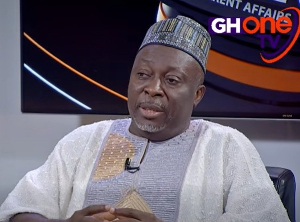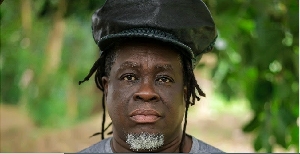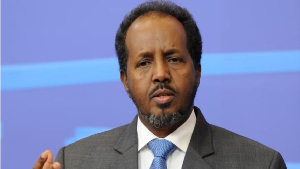By Ahmed Bawa Kuyini
The statement by the World Bank country director on 9th March 2011 that Ghanaian youth are given the wrong education stirred a lot of anger in some Ghanaians. And although some Ghanaians felt that Mr. Ishac Diwan was calling a spade a spade, there is good reason to be angry with the World Bank official for not admitting to his own institution’s role in our current educational disaster. The truth is that the World Bank /IMF are more to blame for the problem than the Ghana Government. And Mr. Diwan' statement, made in an assumed position of expert diagnostician, without admitting to his institution’s role, smacks of complete hypocrisy.
Firstly, the loan agreements between the Ghana government and the World Bank /IMF required the rolling back of the frontiers of Government underpinned by it philosophy of structural adjustment, which we all know played havoc on our society for the last 25 years. Secondly, on the education front, the need to enshrine the condition that poor countries must adopt educational programs akin to the World Bank’s modernist education policy such as the Education of Knowledge Economy (EKE) policy pushed Ghana to concentrate on a narrow vision of education. In this case, the extreme pursuit of access to primary education to the neglect of both relevance to our local context and projections for the future. And we now all see the glut of students looking for secondary education places.
The World Bank, as an institution which portrayed itself as an expert in the courses of action which would lead Ghana to achieve better educational outcomes, failed to foresee that increased primary school enrolments aimed at achieving universal primary education, also meant huge potential demands for secondary education in the future. It also failed to recognise that the content of education needed to be tailored to the local needs of the Ghanaian economy, rather than the extreme focus on training our young people to meet the demands of the international labour market. This is kind of educational orientation to our local economic needs is essential because Ghana still has a substantial unglobalised economic sector.
This lack of vision on the part of the World Bank meant that it allowed the Government of Ghana to acquire huge loans to support education programs which the Bank now perceives as irrelevant education. For example the World Bank funded projects such as the Education For All Project and Restructuring of the Ghana Education Sector Project, which were executed only seven years ago, did not address this issue of irrelevant education. In fact, The Ghana Education Sector Project (EdSeP), received a WB credit of SDR 52.7 million in March 2004 to promote equitable access to, and efficient delivery of quality services in pre-tertiary education; and foster innovation, relevance, quality and efficiency in tertiary education (WB, 2009b, p.2-4).
Unfortunately it failed to deliver in terms of vocational and technical education. Here we see that no attention is given to vocational and technical education even though the so called educational experts in the World Bank were present in all of the negotiations, execution and evaluation. To me, it is either a case of sabotage, where a conscious silence was exercised in order to get our country to borrow more money in the future (and slip down the abyss of indebtedness) or a case of lack of vision on the part of the so called experts on the future of Ghana.
The question that certainly needs to be asked is why didn’t the bank foresee this imbalance? Some in the World Bank may argue that the principle of non-intrusion in what countries want to do – an amendment to the bank’s earlier heavy-handedness and authoritarianism in loan negotiations – was being applied. If such a defense is mounted by the bank, then the questions to ask are: Did the bank neglect to pursue the principle of value for money? And did they forget to follow the main principle underpinning their Education For Knowledge Economy (EKE) policy/agenda, which states “Education is central to development…the most powerful instrument for reducing poverty and inequality….The Education for the Knowledge Economy (EKE) is aimed at helping developing countries equip themselves with the highly skilled and flexible human capital needed to compete effectively in today’s dynamic global markets (WB, 2009, Online, para.1)
To my mind the comments by the country director of World Bank some days ago constitute a shameful attempt to absolve itself of some responsibility for our educational disaster. The bank needs to be bold and tell us that it either failed to foresee this confounding disaster or ignored it for its own objectives. The Kuffour Government’s Education Reform Program (2007), reiterated past reform goals in calling for more vocational/technical/ICT skills in our educational graduates and yet it took nearly five years for the bank to act in any decisive manner to support Ghana.
The position I have taken in this paper is not intended to dismiss the role of our government in this mess. Our government is responsible for two main reasons. Firstly, it has lacked the will-power and perseverance to implement what it knows is a good policy around vocational/ technical/ICT education. All governments since the Acheampong regime (when the JSS program was initiated) have failed to do this. Secondly and most importantly, our government has failed to utilize the international loans and donor funds in the right places; failed to ensure effective implementation of such projects and failed to consolidate gains from such projects. The charge of ineffective implementation of projects is clearly the case because according to the World Bank (2009) only 59% of Ghana’s projects achieved their objectives over the last several years. There also appears also to be a lack of management vision to ensure that these projects deliver long-term services and avoid undoing the gains from such projects. In this case, a good example is the report by Akyeampong, (2004) which noted the lack of vision on the part of the Ghana Education Service, when it implemented a mass transfer of District Directors of Education and other staff who had developed management capacity under the UK funded Whole School Development (WSD) project (1996), which was to deliver the objectives of FCUBE. There are other examples of this lack of vision on the part of our government.
What is required is that our government should be encouraged to take bold actions in the when it comes to implementing policies around these valuable skills, in order that our youth can contribute meaningfully to our economy. This argument is contained in my earlier article on this forum titled “Ghana’s new education reform: Is the philosophy right?
The truth is that many scholars and institutions have criticised Ghana’s education system, noting in particular that the existing system partly misses critical components such as access, quality and relevance to local needs (IMF, 2003, UNESCO Institute, 2008). Unfortunately, the application of the World Bank’s (WB) modernist education policy – through the dictates of structural adjustments and neo-liberal oriented ideological policies – coupled with the fact that locally induced reforms in Ghana, hardly ever achieve their stated goals (GOG, 2007) means that there is a diminished possibility for Ghana to achieve meaningful educational outcomes for our school graduates. The World Bank should therefore avoid cheap populism and in addition to broadcasting the ills of our education system, admit its role in the present predicament.
Dr. Ahmed Bawa Kuyini
For CEVS-Ghana, Tamale.
Opinions of Sunday, 13 March 2011
Columnist: Kuyini, Ahmed Bawa














